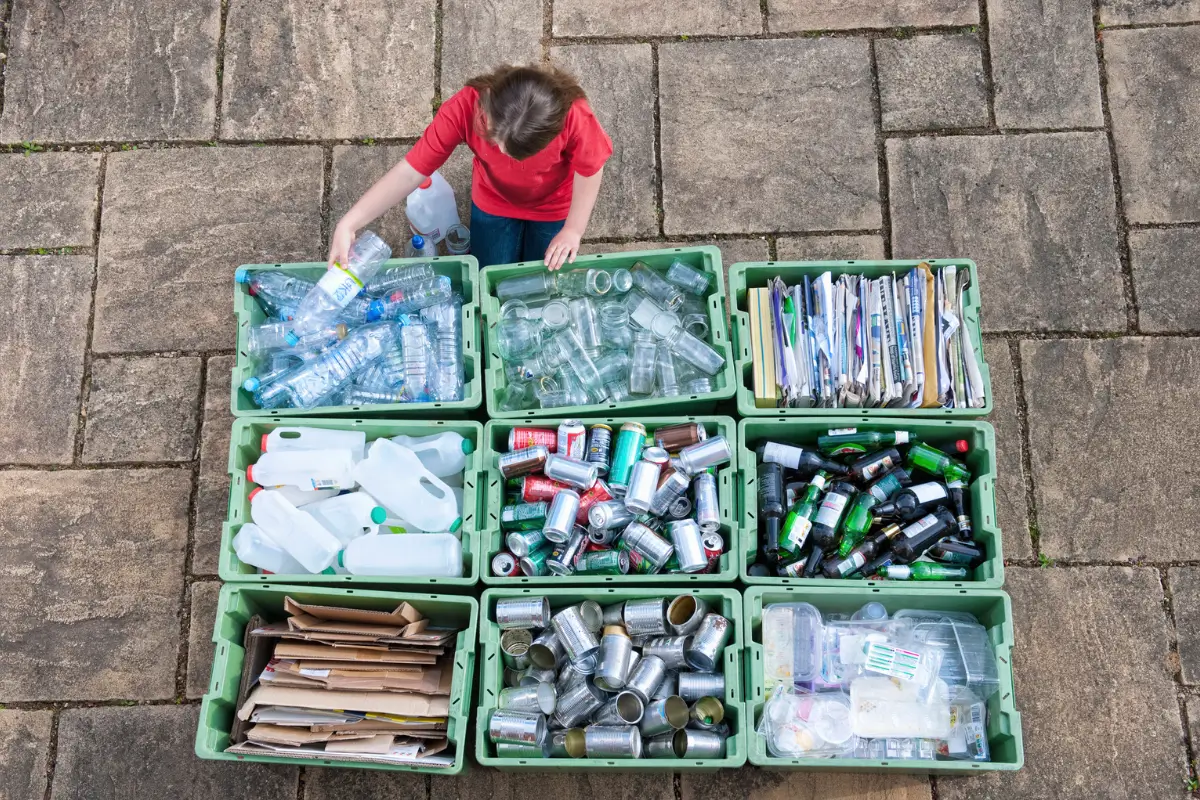Is My Plastic REALLY Getting Recycled?
Recycling 101 – A Cheat Sheet for Recycling Right

Recycling is an essential part of our efforts to reduce waste and protect the environment. When done correctly, it conserves valuable resources, reduces landfill waste, and minimizes pollution. However, it’s crucial to know the best practices for residential recycling to ensure your efforts have a positive impact. In this blog post, we’ll discuss five essential tips for recycling right.
1. Know What’s Recyclable: Before you start recycling, it’s essential to understand what materials are accepted by your local recycling program. Different areas may have varying guidelines, so check with your local recycling facility or government website for a comprehensive list of accepted materials. Generally, materials like paper, cardboard, glass bottles, aluminum cans, and certain plastics are recyclable. Avoid putting non-recyclables in your recycling bin, as it can contaminate the recycling stream.
2. Clean and Rinse: Dirty or food-contaminated recyclables can lead to contamination in the recycling process. Be sure to rinse out food and beverage containers before placing them in the recycling bin. This helps maintain the quality of recyclable materials and ensures they can be effectively processed. No need to overdo it, though! A quick rinse or wipe will do the trick.
3. Keep batteries and electronics out of the bin: Batteries and battery-powered devices ignite and cause fires, making them very dangerous to our workers and your recyclables. Batteries should never be placed in the recycling bin. Instead check your municipal website for drop-off locations or ways to responsibly dispose of your batteries and electronics. Read more about battery safety here.
4. Avoid Plastic Bags: One common mistake people make is placing recyclables in plastic bags before placing them in the recycling bin. Plastic bags can clog machinery at recycling facilities and are generally not accepted. Instead, consider using reusable shopping bags or return plastic bags to grocery stores that have designated recycling programs for them. Always check your local recycling guidelines regarding plastic bags. If you must use plastic bags, make sure they are clear.
5. Educate Yourself and Others: Promoting recycling awareness within your household and community is crucial. Encourage your family members, neighbors, and friends to recycle correctly by sharing your knowledge. You can also participate in or organize local recycling education events or workshops. The more people understand the importance of recycling and how to do it right, the more effective our collective efforts will be in preserving the environment.
In conclusion, residential recycling is a simple yet impactful way to contribute to a more sustainable future. By following these five best practices—knowing what’s recyclable, cleaning and rinsing, keeping batteries out, avoiding plastic bags, and educating yourself and others—you can make a positive difference in reducing waste and conserving resources. Remember, recycling right is not just an individual effort; it’s a collective responsibility that benefits us all and helps protect our planet for future generations.
Have more recycling questions?
Visit our FAQs and learn more about recycling right!

